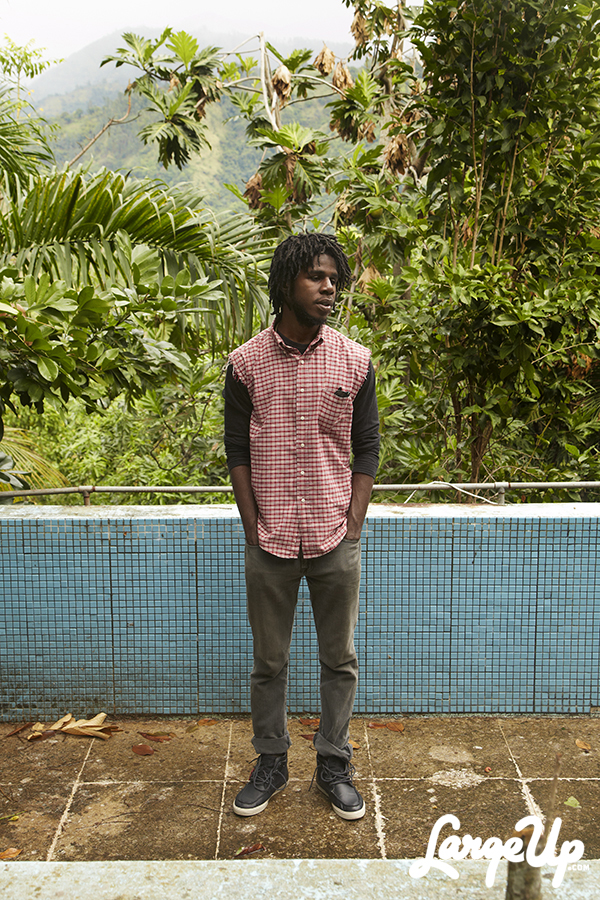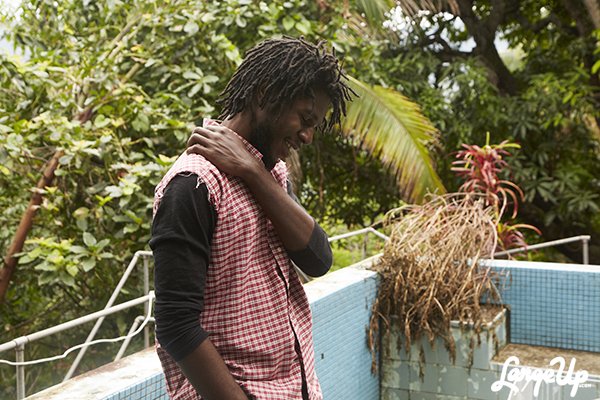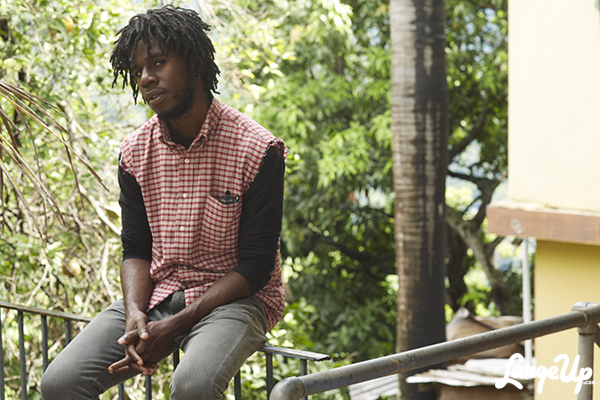
LargeUp: How did you get started?
Chronixx: My music come from early beginnings, from childhood days. I used to sing at school, in church, and then my whole family sings. My daddy, Chronicle, caused me to be very exposed to music from a very tender age. That’s where the music started for me. Professionally now, that’s when I was in high school. I started producing. Making riddims. But the music go from then until now. When I was 15, 16 I started producing and it was a great vibe for me.
LU: You say you started with producing and then moved to performing. What’s the difference between being a producer and an artist?
Chronixx: Production is mainly the behind-the-scenes part of the music. But when you check it, that’s where most of the stuff is going on. I think that’s my real passion in music—the making of the music and not just the presentation of the music. Because what the artist does is present the production, put it out to the people and then you are the face of this production. But I think being an artist is harder on a personal level.
In production you get more time to be alone with the music and more intimate. As an artist you have to present yourself in a certain way. You can’t really be yourself as an artist. You have to come up with an image—conduct good interviews [laughs]—and producers are just men in the studios [who] take time to get intimate with the music.

LU: When I first saw you perform, and in subsequent performances, you are always performing with a number of different people. Can you tell me a bit about the community that you are a part of?
Chronixx: Chronixx always represent for Jah Ova Evil. Jah Ova Evil is the movement that put me on my first stages. You know the whole live music movement with Kabaka Pyramid, Jah 9, Kelissa, Raging Fyah, Pentateuch, Nomaddz, just to name a few. There’s a whole lot of us. You have Infinite, Micah Shemaiah, a whole heap. I mean, that synergy, this new uprising of artists—the unity is what makes us unique. Because each one teach one and each one strengthen the other so it’s not like you are alone out there on this musical battlefield but it’s more like an army.



